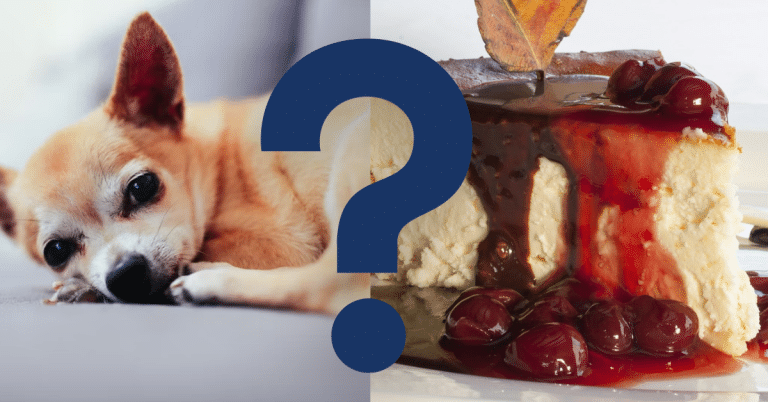Can Dogs Eat Hazelnuts

Hazelnuts are usually high in fat, but can dogs eat hazelnuts
Although hazelnuts by themselves are safe for dogs, their size and shape might make them a choking danger. Hazelnuts are also heavy in fat, which when ingested in excessive amounts by dogs, can cause pancreatitis and intestinal problems. Additionally, certain hazelnuts could contain mould or mycotoxins that are toxic to dogs.
Let’s dive in:
Benefits Of Hazelnut For Dogs
When fed in moderation, hazelnuts can benefit dogs in several ways. Here are a few possible advantages:
- Hazelnuts are rich in healthy fats, vitamins (including vitamin E and B vitamins), minerals (such manganese and copper), and other critical elements. These vitamins and minerals can help dogs have a balanced diet.
- Hazelnuts are a strong source of antioxidants, which aid in defending the body against oxidative damage and free radicals. In addition to supporting general health, antioxidants may also have anti-inflammatory properties.
- Hazelnuts include omega-6 fatty acids, which are important for maintaining dogs’ healthy skin and coats. These fatty acids can aid in lowering skin irritation, dryness, and itching.
- Hazelnuts are reasonably high in calories and good fats, which can provide dogs that are active or who need more calories a rapid energy boost.
Despite these possible advantages, it’s crucial to remember that hazelnuts should only be given to dogs occasionally as a treat. Because of their size and high fat content, they can be a choking danger and cause digestive distress or pancreatitis if consumed in large quantities. Before giving your dog any new meals, it is always advised to speak with your veterinarian.

How To Safely Give Hazelnuts To Dogs
It’s crucial to feed hazelnuts to dogs securely and in moderation if you decide to do so. Following are some suggestions:
- Consult your veterinarian: It is recommended to seek advice from your veterinarian before introducing hazelnuts or any new food to your dog’s diet. Based on the requirements and health issues of your dog, they may offer detailed advice.
- Avoid offering your dog hazelnuts that have been salted, flavoured, or covered with any spices or additions; instead, choose for plain, unsalted varieties. These extra components may be dangerous for pets.
- Remove the shell since it is hard for dogs to digest and can be a choking danger. Before giving your dog hazelnuts, always remove the shells. Giving children plain, shelled hazelnuts is the best option.
- Hazelnuts are heavy in calories and fat, so it’s vital to just give your dog a small amount of them each day. The occasional pleasure of a few hazelnuts should be plenty. The consumption of too many hazelnuts may result in weight gain or digestive problems.
- Keep an eye out for allergies or sensitivities: As with any new meal, keep an eye out for any negative responses in your dog. Hazelnuts may cause allergies or sensitivity in certain dogs. Keep an eye out for any odd symptoms, such as hives, itching, or stomach distress. Stop feeding hazelnuts if you have any unfavourable effects.
- Think about alternatives: Other dog-friendly nuts, including unsalted peanuts or almonds, are a choice if you’re worried about hazelnuts or would rather provide a safer option. It’s crucial to introduce new meals gradually and sparingly, though.
A balanced and suitable dog food should be your dog’s main source of nourishment; treats should only make up a tiny fraction of his diet.
Will Hazelnut Make A Dog Sick?
If a dog consumes hazelnuts in big quantities or if the dog has a particular sensitivity to them or an allergy to them, they may make the dog ill. Even while hazelnuts are not generally thought to be poisonous to dogs, there are a few dangers to be aware of:
- Hazelnuts can be a choking hazard for dogs, particularly little breeds or those that have a tendency to gulp their food because of its small size and spherical shape. Remove the hazelnuts from their shells and serve them in reasonable portions.
- High fat content: Due to its relatively high fat content, hazelnuts can cause gastrointestinal distress, including vomiting, diarrhoea, or pancreatitis, which is a disorder marked by pancreatic inflammation. Hazelnuts should never be given to dogs with sensitive stomachs or those who are prone to pancreatitis.
- Hazelnuts may occasionally contain mycotoxins or moulds, particularly if they are not kept correctly. Dogs that are exposed to these moulds and mycotoxins may suffer from digestive disorders or other health concerns.
It’s essential to think about the ingredients and cooking techniques used while making foods using hazelnuts. Like other nut butters, hazelnut spread or butter can be occasionally given to dogs in tiny amounts as a treat. Make sure the product is free of dangerous ingredients like the poisonous xylitol for dogs.
Hazelnut flavor may be found in a variety of foods, including several cookies, chocolates, and pastries. These items frequently have extra substances that might be detrimental to dogs, including sugar or chocolate. It’s advised to steer clear of offering your dog any products with hazelnut flavor owing to the possible dangers of the other components.
Hazelnuts should normally not be given to dogs, or at the very least, should only be given seldom as a treat, to minimize any potential problems. It is advised to get advice from your veterinarian if you think your dog may have eaten a lot of hazelnuts or if you see any unusual symptoms.

A Vet’s Summary
Giving hazelnuts to dogs is often not encouraged based on basic veterinarian advice and guidelines. Although hazelnuts by themselves are not thought to be poisonous to dogs, they can nonetheless present several concerns, including choking risks, high fat content, and the possibility for mould or mycotoxins.
It’s always advised to speak with a veterinarian for individualised guidance on your dog’s diet and certain food products. For the most precise and individualised advice, veterinarians can consider elements including your dog’s age, breed, size, general health, and any current medical issues. To maintain your dog’s immunity, you can add probiotics into its diet. Beneficial bacteria or yeasts known as “probiotics” for dogs can support a healthy balance of microorganisms in their digestive tract
It is recommended to speak with your veterinarian before adding hazelnuts or anything connected to them to your dog’s diet to be sure it will benefit your dog’s general health and nutritional requirements. Based on the unique conditions surrounding your dog, they can provide you the most recent and trustworthy information.
Videos To Watch
If you are wondering whether dogs can eat hazelnut, watch this:
If you are wondering whether hazelnut is harmful for dogs, watch this:






